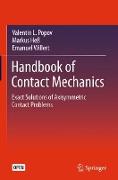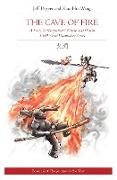- Start
- Handbook of Contact Mechanics
Handbook of Contact Mechanics
Angebote / Angebote:
This open access book contains a structured collection of complete solutions of all significant axially symmetric contact problems. It provides solutions for classical profiles such as the sphere, cone or flat cylindrical punch as well as a multitude of other technically relevant shapes, e.g. the truncated cone, the worn sphere, rough profiles, hollow cylinders, etc. Normal, tangential and torsional contacts with and without adhesion are examined. Elastically isotropic, transversally isotropic, viscoelastic and functionally graded media are addressed. The solutions of the contact problems cover the relationships between the macroscopic quantities of force and displacement, the contact configuration as well as the stress and displacement fields at the surface and in some cases within the half-space medium. The solutions are obtained by the simplest available method – usually involving the method of dimensionality reduction or approaches of reduction to the non-adhesive normal contact problem. The target audiencesThis book is geared towards engineers working in e.g. mechanical engineering, the tire industry, the automotive industry, polymer- and elastomer manufacturing. Additionally, it functions as a reference work for research and teaching.Prof. Dr. rer. nat. Valentin L. Popov studied physics and obtained his doctorate in 1985 from the Lomonosov Moscow State University. He habilitated 1994 at the Institute of Strength Physics and Materials Science of the Russian Academy of Sciences. Since 2002 he has headed the Chair of System Dynamics and Friction Physics in the Institute of Mechanics at TU Berlin. Dr. Markus Heß studied Engineering Science at TU Berlin. He obtained his doctorate in 2011 and in the same year received the research award of the German Tribology Society for his dissertation. From 2011 to 2015 he headed the physics department of the preparatory college of TU Berlin and since 2015 has been working as an assistant professor at the Chair of System Dynamics and Friction Physics.M.Sc. Emanuel Willert studied Engineering Science at TU Berlin and the Tomsk Polytech-nic University. Since 2015 he has been working as a research assistant at the Chair of System Dynamics and Friction Physics.
Folgt in ca. 15 Arbeitstagen


